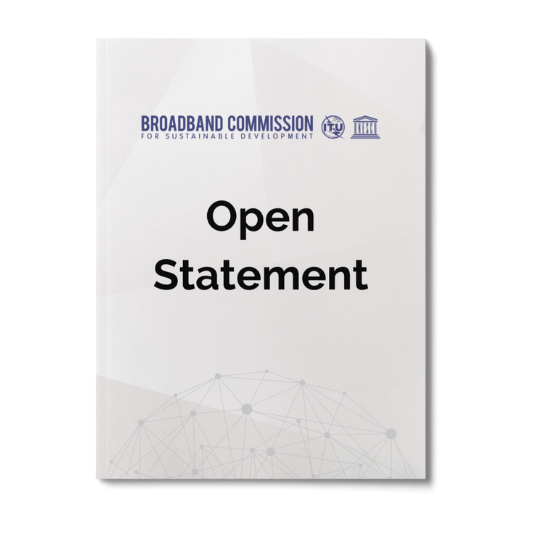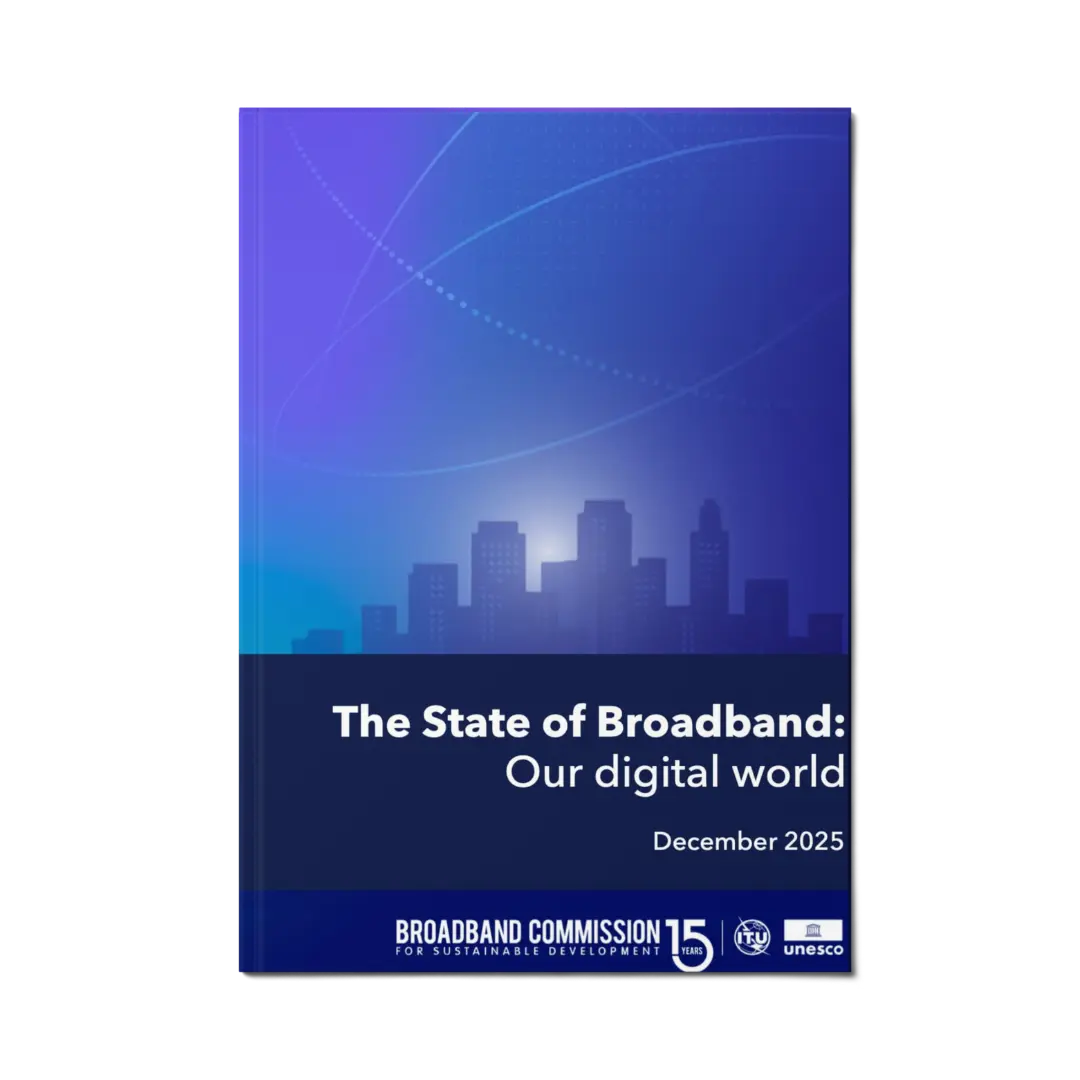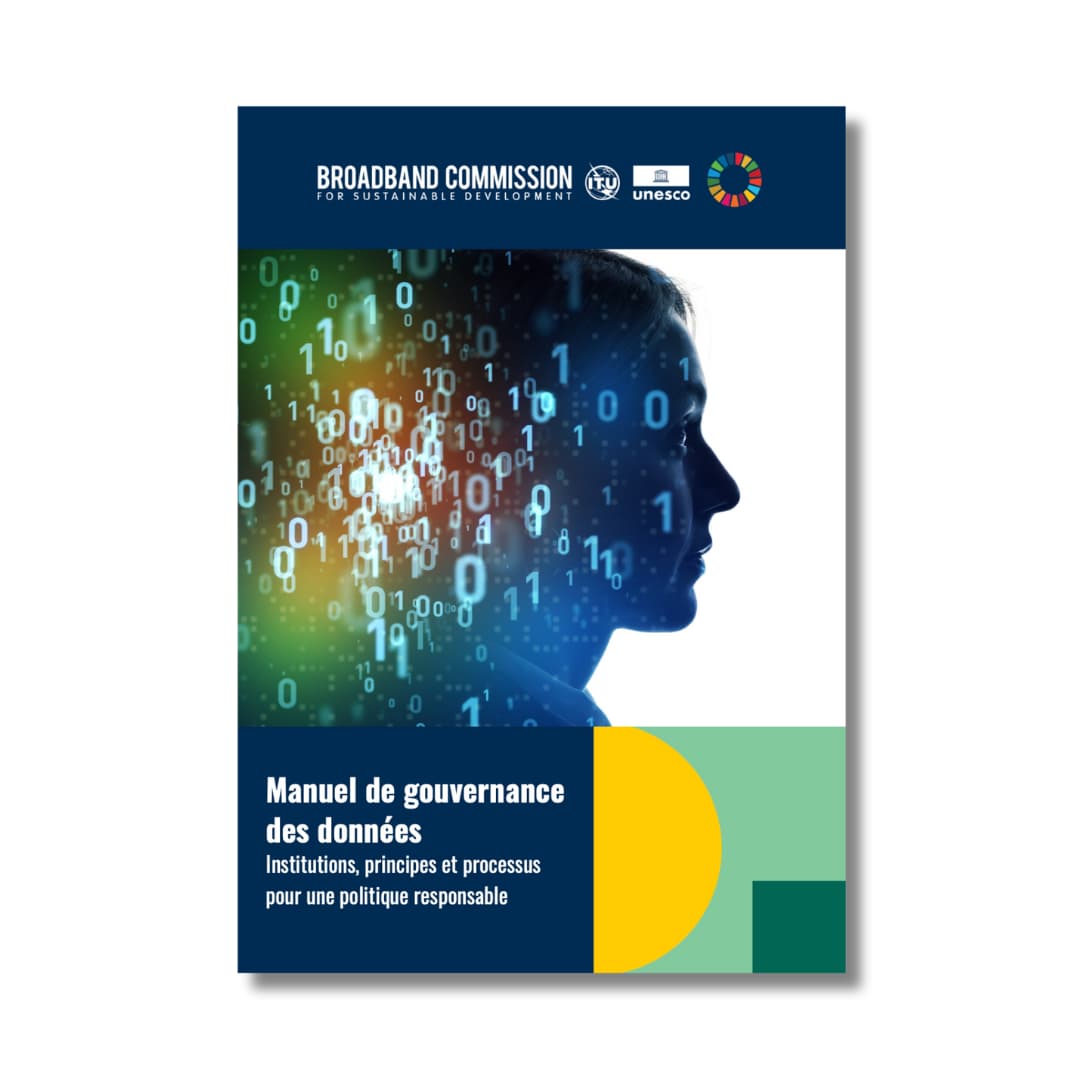Broadband for Implementing the Paris Agreement
The UN Broadband Commission for Sustainable Development addresses this Open Statement to the UN Marrakech Climate Change Conference (COP-22) Conference in Morocco in November 2016.
We, the UN Broadband Commission for Sustainable Development, affirm our sincere belief in the vital role of broadband for addressing climate change and for achieving the UN Sustainable Development Goals (SDGs). We urge attendees to the UN Marrakech Climate Change Conference to recognize the need for the global roll-out of broadband infrastructure, devices, applications and services to help mitigate and adapt to climate change and to advance towards full implementation of the Paris Agreement.
Climate change poses serious threats to global biological and cultural diversity, and to the long-term survival of the human species. The evidence for rapid and accelerating climate change on a significant scale is growing and incontrovertible. Furthermore, it is clear that some of the planet’s natural cycles and recovery mechanisms are severely compromised and limited from functioning (such as natural carbon sinks, forestation, and atmospheric and oceanic mechanisms). Different aspects of climate change include: greater variability in climate processes and weather patterns (immediately, and over the long-term); more frequent, and more intense, weather phenomena; and reduced resilience of natural ecosystems and species to change and/or destruction of their natural environments.
The goal defined in Paris in 2015 is clear: to strengthen the global response to climate change by keeping global temperature rise this century below 2 degrees Celsius above pre-industrial levels, and aiming to limit the increase to 1.5°C, since this would significantly reduce the risks and impacts of climate change. Broadband and Information and Communication Technologies (ICTs) will be key to achieving this goal, as they are vital enablers of all three pillars of sustainable development – economic development, social development and environmental protection. Broadband and ICTs can help make economic growth more sustainable, while protecting the environment.
The Broadband Commission’s 2012 report, The Broadband Bridge: Linking ICT with Climate Action for a Low-Carbon Economy, remains relevant, and observes that broadband and ICTs can deliver significant carbon savings on a day-to-day basis through the use of energy-efficient and alternative renewable energy technologies. The World Energy Council has estimated that the production and use of electricity accounts for 40% of Greenhouse Gas (GHG) emissions globally, making the electricity sector the single largest contributor to GHG emissions. Energy supply and distribution companies can use smart grids and ICT to increase renewables, reduce losses, prevent outages, make homes more energy-efficient, support reaching the goal of energy for all through distributed renewable energy solutions coupled with ICT, and adopt a customer-centric business model to provide users with real-time information to manage their energy consumption and footprint.
The use of broadband and ICTs could also help make economic growth and industrial production processes more efficient, ‘cleaner’ and more environmentally sustainable. In Germany, for example, it has been estimated that the smart use of ICT solutions could reduce carbon dioxide emissions by as much as 25% . Peer reviewed research from Ericsson suggests that, if ICT is deployed with the intention to reduce carbon emissions, global carbon emissions could be reduced by 15% by 2030 globally, equaling the emissions of EU and US together today.
According to UN data, over half the world’s population lives in cities – a proportion which may increase to over 70% over the next thirty years. Furthermore, cities are responsible for 60% of global energy consumption, 70% of greenhouse gas emissions and 70% of global waste. ICT-based urban policies implemented through the deployment of smart cities may provide critical leverage to mitigate the impact of climate change. In addition, following extreme weather events (such as tornadoes, floods, typhoons, hurricanes or forest fires), broadband can support cities’ emergency response through public safety systems and the use of reliable and secure communication networks for search and rescue, and coordinated relief efforts.
The use of broadband and ICTs can promote smart practices that can achieve GHG emissions reductions and the improvement of resilience across other sectors, such as agriculture, forestry, water, sanitation, transport by: (i) promoting efficiency and reduced stress in the use of natural resources, such as water, land and energy, improving risk assessments and planning; and (ii) enhancing capacity of assessing and adapting practices to changes in climate variability. The role of the private sector and its active involvement is crucial in fulfilling the objectives set by the Nationally Determined Contributions (NDCs). Instruments as the green bonds for the promotion of energy efficiency are key to scale up action and ensuring the participation of local stakeholders.
Broadband and new data sources can help mitigate climate change, foster resilience and address climate adaptation. New data sources and new analytical techniques can now provide high-resolution feedback on global environmental systems, societal behavioral shifts, and the effectiveness of policy changes. Satellite monitoring and big data analytics can be used to track shifts in planetary processes and systems (including deforestation, changes in ocean temperature, the thinning of polar ice, animal populations and migration patterns, and land use).
The global data revolution is also creating new opportunities to mine privacy-protected private sector data for large-scale behavioral insights, which can be channeled to reduce greenhouse gas emissions and build resilience to climate change. For example, understanding societal patterns of sustainable or unsustainable consumption, and the factors that influence them, could highlight opportunities to change behavior. Observing movement patterns from mobile data after a climate shock could improve disaster preparedness and response.
Improving data and time series analysis can enrich scientific research and track the evolution of all these processes, including the impact of changes in policy. Further, following adverse weather strikes and ‘natural’ disasters of unnatural strength (e.g. tornadoes, floods, typhoons, hurricanes or forest fires), broadband can support cities’ emergency response through public safety systems and the use of reliable and secure communication networks for search and rescue, and coordinated relief efforts.
By promoting the 2030 Agenda and the seamless integration of climate change initiatives, energy initiatives and broadband initiatives to shape a low-carbon economy in the way best-suited to their economy, governments have the opportunity to show leadership and build economic and societal resilience. Tackling climate change requires coordinated global action—which has been the focus of the United Nations Framework Convention on Climate Change (UNFCCC). It is only through a unified approach based on cross-sectoral collaboration by governments, the private sector, international organizations and civil society that we can achieve the necessary conversion to a low-carbon and resilient global economy in order to advance towards the implementation of the Agreement. The ICT industry sector today emits less than 2% of total global emissions, and research suggests that the ICT industry will not grow in its percentage of total emissions. Peer-reviewed research from Telia and Ericsson in Sweden shows that electricity consumption for ICT has reduced over the five last years in absolute terms, while data traffic has increased exponentially, suggesting that ICT may have decoupled electricity usage from increase in output.
We invite all parties to the Agreement to integrate the unique and transformative potential of broadband and ICTs into their plans to implement, monitor and finance their NDCs and to develop National Adaptation Plans. Transparency will benefit greatly from the potential offered by ICTs through governance and technology transfer solutions. We must work together to ensure that ICT, broadband-based technologies and data analytics are properly harnessed to increase energy efficiency, protect the environment, and to mitigate GHG emissions and to adapt to the adverse consequences of climate change. Let us grasp this vital opportunity to strive for a model of sustainable development and a future in which people live in harmony with the planet and its many rich and diverse species.




